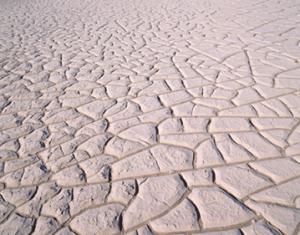THE Awards: Weather reports aid life-or-death decisions in Africa
Release Date 28 November 2013

Dr Ros Cornforth has been nominated in the ‘International collaboration of the year' category of the Times Higher Education Awards 2013, which are announced this Thursday, for her work on the Africa Climate Exchange project.
The University of Reading has the joint highest number of nominations at the awards.
The Africa Climate Exchange (AfClix), a University of Reading led project, is helping to bring vital drought and flood information to the people of sub-Saharan Africa.
When a failure of the monsoon rains brought severe drought in 2011 and floods submerged farms and polluted water supplies in 2012, AfClix worked with the US-funded Rainwatch project, Oxfam and Practical Action to warn of the impending dangers.
The people living in sub-Saharan Africa have a life-or-death dependency on information about the weather. Knowing when, where and what to grow or graze animals can be the difference between a bumper harvest and facing starvation.
Rainfall information is crucial. Sub-Saharan Africa depends more directly on rainfall than any other region on Earth, and yet has the fewest number of rain monitoring stations. There are also significant delays in the time between measurements being made and the resulting data being made available.
Rainwatch helps provide information in real-time, helping the Niger government to predict and react to the drought of 2011 and deluges of 2012, and informing NGOs and western governments with requests for international relief aid.
While the system, created at the NOAA Cooperative Institute for Mesoscale Meteorological Studies (CIMMS) at the University of Oklahoma, has been gathering data for several years and working in Niger, AfClix has helped extend its reach and broaden its application by putting the information into the hands of other African governments and NGOs such as Practical Action.
Dr Ros Cornforth, Director of AfClix, is a researcher at the University of Reading's world-renowned Department of Meteorology and in the Climate Directorate of the National Centre for Atmospheric Science (NCAS-Climate).
She said: "There are communication problems between scientists and policy-makers all over the world. But in Africa the problem is particularly acute and, given the extremes of climate facing many people, particularly dangerous.
"By communicating directly with organisations and individuals on the ground, AfClix has been uncovering the issues that really matter to people, and matching them with solutions that can save thousands of lives."
"Through AfClix, weather information from systems such as Rainwatch can mitigate humanitarian disasters by prompting officials to take action sooner," said Professor Emily Boyd, professor of resilience geography, University of Reading.
"This was a great example of how these systems can work. It put information about the risks from extreme weather into the hands of the people who were able to do something about it."
ENDS
For more information, contact Pete Castle at the University of Reading press office on +44 (0)118 378 7391 or p.castle@reading.ac.uk.
Notes to editors:
AfClix was set up in 2012, with funding from the University of Reading, Natural Environment Research Council (NERC), Grantham NCAS and the Walker Institute. It matches local needs in Africa with weather and climate expertise from around the world. Among a growing number of projects across the continent, the system of knowledge exchange has helped:
- create drought early-warning systems with NGOs in Sudan
- develop new communication channels for flood alerts in Senegal
- improve climate science education at universities in Ghana
The University of Reading is ranked among the top 1% of universities in the world (THE World University Rankings 2012). Its Department of Meteorology is internationally renowned for teaching and study of atmospheric, oceanic and climate science and earth observation. Reading is involved with pioneering research on weather, climate and earth observation and is home to the Walker Institute for Climate System Research.
The winners of the Times Higher Education Awards 2013 will be announced on 28 November 2013 at an event in London. More details at www.the-awards.co.uk
